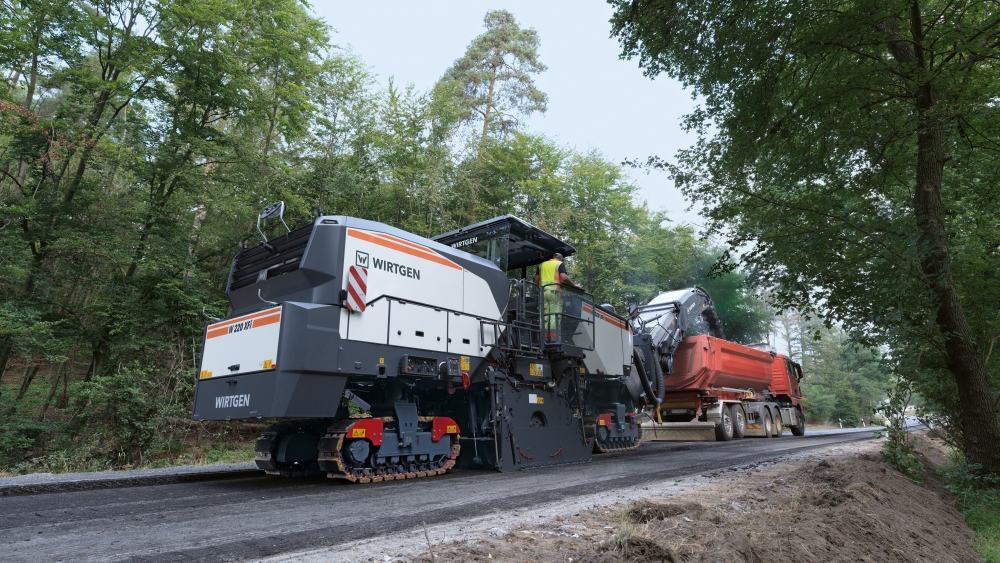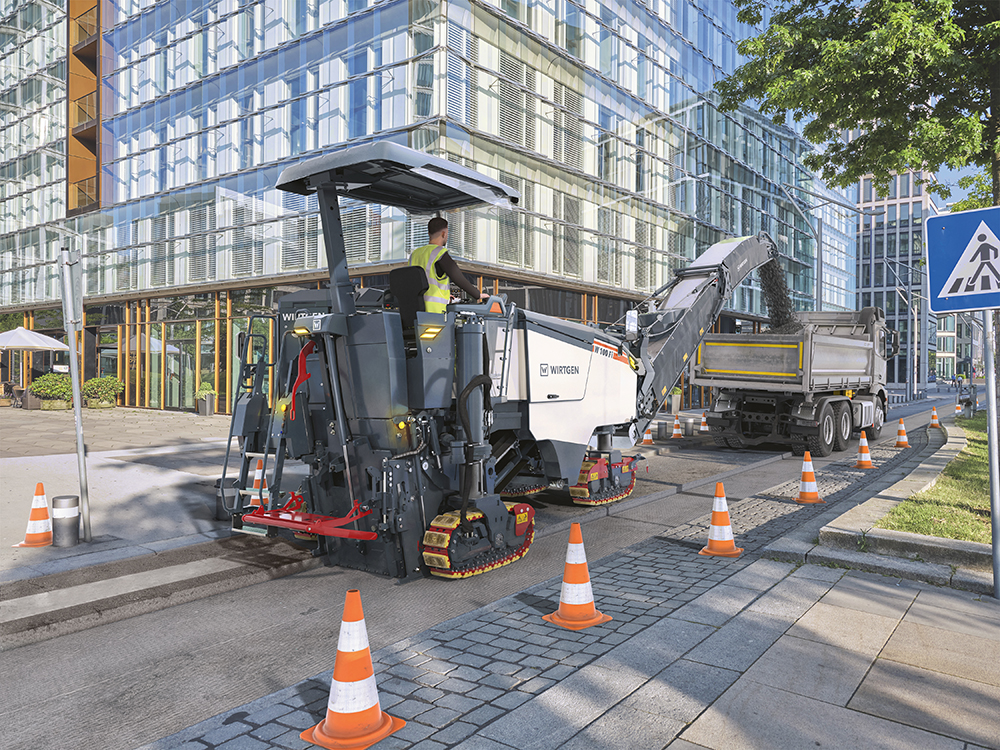
Wirtgen’s new W 220 XFi cold milling machine has been designed to work across as many applications as possile, “from surface layer rehabilitation to complete asphalt removal,” says the German manufacturer.
“Specific carbon emissions are low and milling performance is high plus, in automatic mode, Mill Assist selects the operating strategy with the most favourable balance between milling performance and operating costs.”
The W 220 XFi uses a “Multiple Cutting System for milling widths between 2.20m and 3.80m,” says Wirtgen, and the machine layout “makes it easy to quickly switch milling drums and milling drum assemblies.”
Using the latest engine technology from John Deere, and the group’s Dual-Shift powershift transmission, the W 220 XFi meets all the latest EU Stage 5 / US Tier 4 Final exhaust emission standards.
According to Wirtgen: “This large milling machine from the ‘Xtended F-Series’ with a standard working width of 2.20 m comes equipped with the most environmentally friendly engine technology on the market. The 18-litre John Deere JD18L engine provides its maximum power of 627 kW even at engine speeds of only 1,500 rpm.
“It has been specially designed to meet the requirements of cold milling, delivering high torque under all load conditions. Thanks to the Dual-Shift transmission, the high torque can be used at low rpm for optimal milling performance. Even at low engine speeds, high milling drum rotation speeds are possible. The engine meets exhaust emission standards without requiring DEF (diesel exhaust fluid / AdBlue).”
The unit also features Wirtgen’s Mill Assist machine control system, which the company says “increases milling performance while simultaneously reducing diesel and water consumption as well as pick wear. The system controls engine speed automatically according to the needs of the operator.
“At lower speed ranges, fuel consumption, noise emissions, and pick wear can be reduced significantly. At the upper speed range, an optimum milling pattern can be attained even over large areas. The operator can also select one of three operating strategies: ‘ECO’, ‘performance-optimised’, or ‘milling pattern quality’. With the latter, for example, it is possible to pre-define the required milling pattern quality incrementally, from coarse to very fine, at the press of a button.”
The Mill Assist machine control system and the technology behind the Wirtgen Group Performance Tracker Milling (WPT Milling) system have already been used in the other F-Series cold milling machines. “With the W 220 XFi, these systems have been further developed to include a CO2 emissions display,” says Wirtgen.
“Both the current emissions and the specific carbon emissions in relation to milling mass can be easily viewed on the control screen. The automatically-generated WPT report can also include the CO2 emissions of the entire project in addition to other construction-relevant data—an expansion of the data foundation used in jobsite analysis and documentation. Different construction projects can now be compared in terms of carbon emissions, allowing conclusions to be drawn for optimising the next project.”








